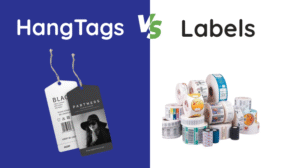Most people assume abookletis simply a tiny book. In reality, many booklets share width and height dimensions with conventional books, making their size comparable.
This raises the question: are booklets genuinely smaller, or do they just look that way? Standard sizes, such as A4 (210 x 297 mm), A5 (148 x 210 mm), and half-letter (140 x 216 mm), influence readability, portability, printing costs, layout, typography, and binding type.
Choosing the right size ensures materials like corporate reports,event programs, promotional brochures, and branded handouts communicate effectively.
Drawing on extensive experience in print design, this guide provides practical insights for choosing the right booklet size. Inside, you will discover:
- Side-by-side visual comparisons of common booklet dimensions.
- Clear, detailed images of each size to aid design planning.
- Precise measurements in inches, millimeters, and pixels to fit a variety of design requirements.
Key Takeaways
- Choosing the right booklet size directly affects readability, portability, and printing costs, making it essential for effective communication.
- Common standard booklet sizes include 5.5″ x 8.5″ (half-letter) and 8.5″ x 11″ (US letter), as well as A4 and A5 (European standard paper sizes) serve different needs—from professional reports to creative layouts.
- The ideal format depends on the booklet’s purpose, audience, and design—balancing practicality with visual impact.
Widely Used Booklet Sizes for Businesses
The most common booklet sizes are US Letter (8.5″ x 11″) and A4 (210 mm × 297 mm), followed by Half-Letter (5.5″ x 8.5″) and A5 (148 mm × 210 mm). The ideal choice depends on page count, portability, and the booklet’s intended use.
Pocket-Sized Booklets: 4.25 x 5.5 inches
- Size in Inches:4.25 x 5.5
- Size in Millimeters:108 x 140 mm
- Size in Pixels(300 dpi): 1275 x 1650
Compact and portable, these booklets are perfect for diaries, journals, or quick reference guides. Their small size allows for easy handling and convenient storage, making them ideal for personal or on-the-go use.

Tall & Slim: 4.25 x 11 inches
- Size in Inches:4.25 x 11
- Size in Millimeters:108 x 279 mm
- Size in Pixels (300 dpi):1275 x 3300
Ideal for vertical displays, this elongated booklet works perfectly forevent menus, wine lists, orpromotional materials. Its narrow footprint allows it to stand out while remaining easy to place on shelves or counters.

Half Letter Standard: 5.5 x 8.5 inches
- Size in Inches:5.5 x 8.5
- Size in Millimeters:140 x 216 mm
- Size in Pixels (300 dpi):1650 x 2550
The half letter is widely used for workbooks, planners, and corporate handouts. Its dimensions balance portability and content space, making it convenient for meetings, notes, or instructional guides.
Read more:17 Must-Have Print + Digital Marketing Materials for Small Businesses
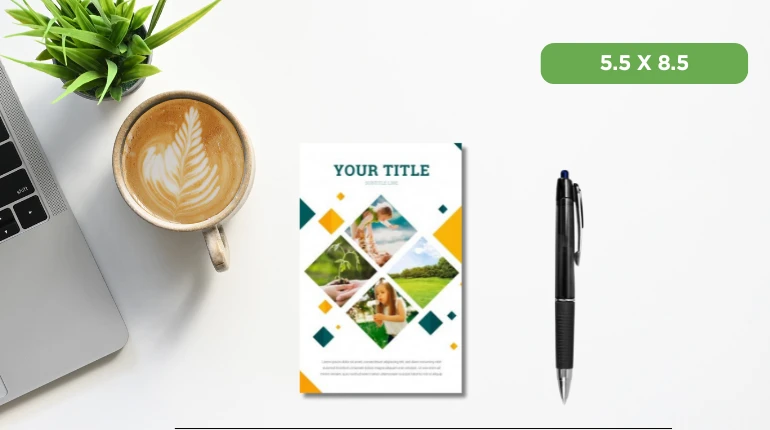
Standard Novel Size: 6 x 9 inches
- Size in Inches:6 x 9
- Size in Millimeters:152 x 229 mm
- Size in Pixels (300 dpi):1800 x 2700
The 6 x 9 format is a staple for novels, biographies, and nonfiction titles. It combines readability, comfort, and print efficiency, making it the go-to choice for publishers aiming for a traditional book experience.
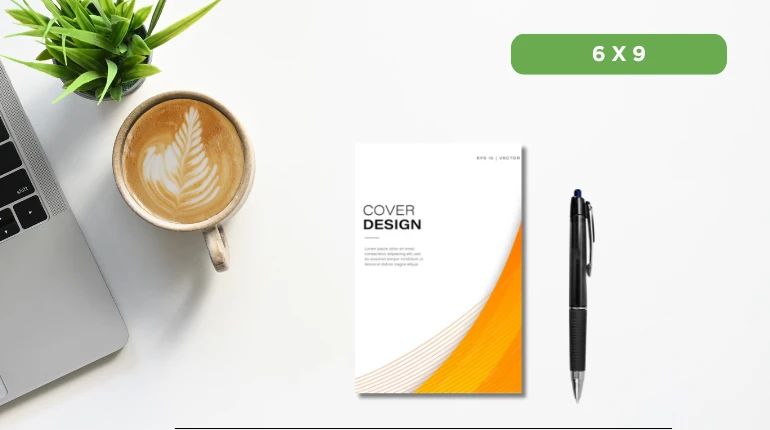
Large Square: 8 x 8 inches
- Size in Inches:8 x 8
- Size in Millimeters:203 x 203 mm
- Size in Pixels (300 dpi):2400 x 2400
Perfect for portfolios, visual-heavy guides, or branded catalogs, this square layout gives designers freedom to create impactful imagery while keeping content approachable and easy to browse.
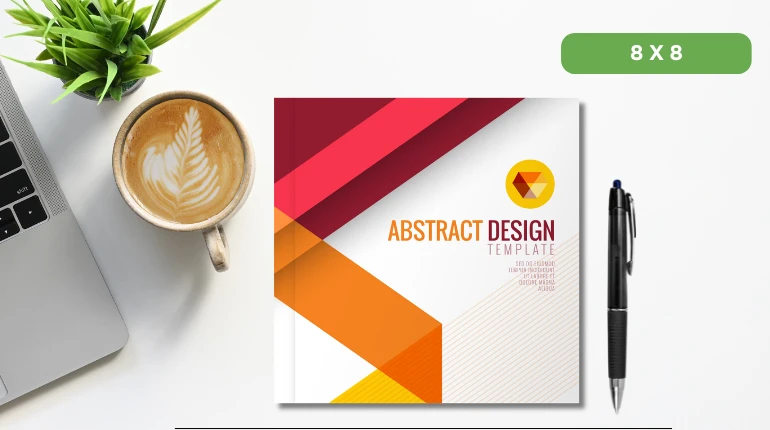
US Letter Standard: 8.5 x 11 inches
- Size in Inches:8.5 x 11
- Size in Millimeters:216 x 279 mm
- Size in Pixels (300 dpi):2550 x 3300
A versatile format for reports, manuscripts, and office publications, the US Letter size is widely trusted in both professional and casual contexts. Its familiar proportions make it suitable for diverse content.
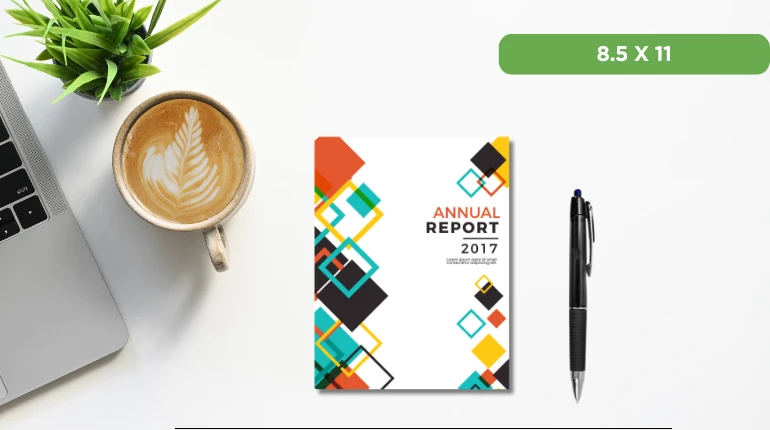
Balanced Square: 8.5 x 8.5 inches
- Size in Inches:8.5 x 8.5
- Size in Millimeters:216 x 216 mm
- Size in Pixels (300 dpi):2550 x 2550
This square booklet is a premium option for coffee table books, photography collections, and art-heavy layouts. Its symmetry offers a visually striking platform while keeping text readable.
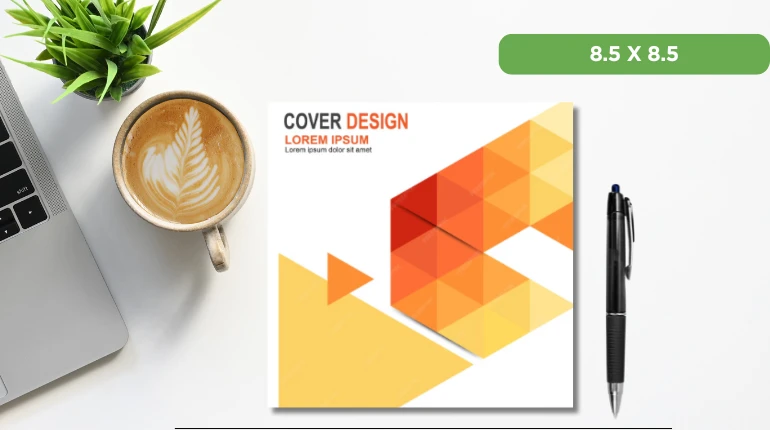
Magazine Standard: 9 x 12 inches
- Size in Inches:9 x 12
- Size in Millimeters:229 x 305 mm
- Size in Pixels (300 dpi):2700 x 3600
Designed for luxury publications and detailed magazine spreads, this size accommodates high-resolution imagery and extensive layouts, providing a sophisticated reader experience.
Read more:Postcard Sizes and Dimension Guide
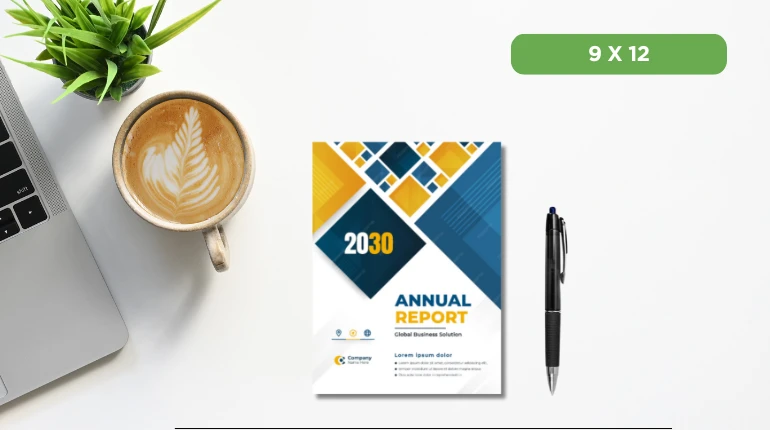
A5 Compact Standard: 5.83 x 8.27 inches
- Size in Inches:5.83 x 8.27
- Size in Millimeters:148 x 210 mm
- Size in Pixels (300 dpi):1748 x 2480
Offering a portable reading experience without losing content space, A5 booklets are perfect for brochures, manuals, or concise handouts. They balance convenience with readability.
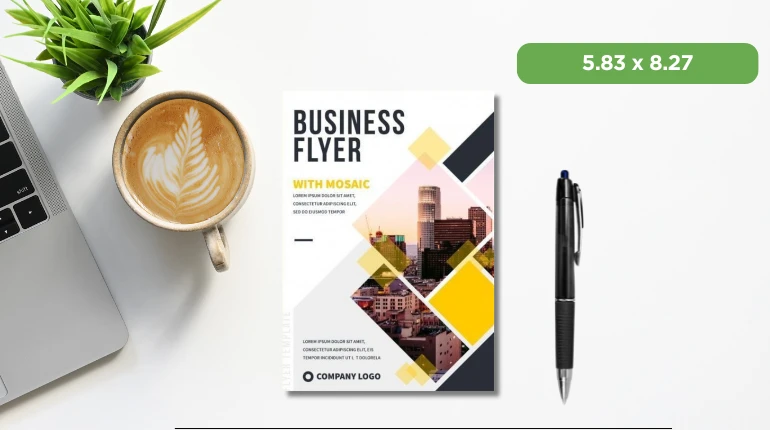
A4 International Standard: 8.27 x 11.69 inches
- Size in Inches:8.27 x 11.69
- Size in Millimeters:210 x 297 mm
- Size in Pixels (300 dpi):2480 x 3508
A4 is globally recognized for professional and educational materials. Its dimensions are ideal for reports, corporate documents, and international publications, providing consistency across regions.
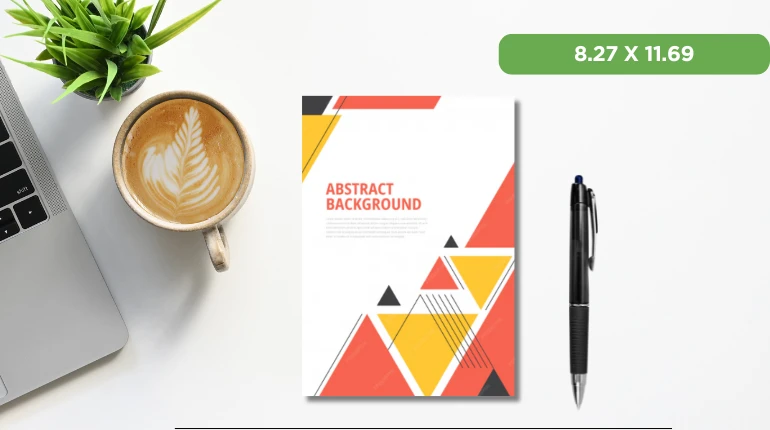
Factors to Consider When Choosing Booklet Sizes
To choose the right booklet size affects readability, usability, and visual impact. Several key factors help designers pick the most suitable format for their content.
- Purpose of the Booklet– Instruction manuals, portfolios, promotional materials, or event programs influence the ideal size.
- Page Count– Larger booklets work better for high page counts; smaller booklets suit brief content.
- Portability– Compact sizes like Pocket (4.25 x 5.5″) or Half-Letter (5.5 x 8.5″) are easy to carry; larger sizes like Letter or A4 suit desk use.
- Target Audience– Professionals may prefer standard sizes; casual readers may enjoy creative or unique formats.
- Printing Costs– Bigger formats typically cost more. Balance quality, size, and budget.
- Layout and Design Flexibility– Large formats allow more images, charts, or creative spreads; small formats require concise layouts.
- Distribution Method– Mailing, handing out, or shelf display can influence size and weight.
- Visual Impact– Square or oversized booklets stand out; standard sizes offer familiarity and readability.
- Binding Options– Saddle stitch, perfect bound, spiral, or wire-o bindings affect durability, cost, and opening flexibility.
Conclusion
In summary, selecting the right booklet size involves balancing readability, portability, design flexibility, and printing considerations. From pocket-sized booklets to A4 and magazine standards, each format serves a specific purpose, audience, and content type. Factoring in page count, visual impact, distribution method, and binding options ensures your booklet communicates effectively while maintaining professional quality and usability.

